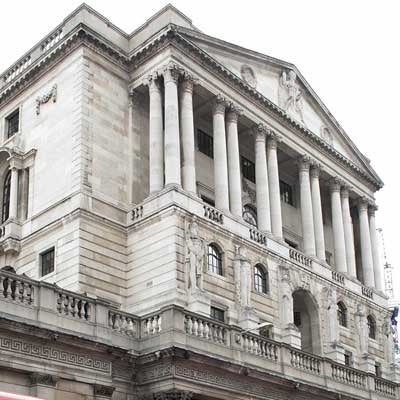Economy 'as bad as the Seventies'

Pressure is mounting on Gordon Brown to find help for hard-pressed families as the new Deputy Governor of the Bank of England warned that the financial situation was at least as bad as that of the 1970s. As the Prime Minister returns to his desk today to work on an economic plan that will form the centrepiece of his attempt at an autumn political fightback, Charles Bean said that the slowdown may "drag on for some considerable time" and that social problems could be caused by the squeeze on household incomes.
Mr Bean, speaking at a central bankers' conference in Wyoming, said that the financial crisis was a "transitory period". But he warned that every time the markets appeared to be recovering, "another grenade" exploded.
He said that there was a mood of "considerable caution" about next year. "We've got our fingers crossed that things will improve. But there is the recognition that there is still a long way to go yet," he said. "It looks like it will drag on for some considerable time. It's fair to say that if you look at the shocks impinging on us this is at least as challenging a time as back in the 1970s."
Sir Peter Burt, a former governor and chief executive of the Bank of Scotland, also warned yesterday that the credit crunch and the rise in fuel costs were worse than the crisis of the 1970s and urged the Bank of England to make it clear it would guarantee deposits to make it clear that it would prevent a bank failure. "I hope the Bank of England are doing more than cross their collective fingers," he told the BBC.
"Instead of suggesting and hinting that no bank would be allowed to fail they should do what they did in 1974-75, come out categorically and say no bank, no creditors of any British bank, will lose money. Full stop."
It also emerged yesterday that up to a dozen junior members of the Government have joined other Labour MPs to press ministers to impose a windfall tax on energy companies' profits to help people struggling with rising fuel bills.
The director general of the CBI, Richard Lambert, is also seeking action to help families hit by rising prices and the economic downturn, although he insisted that it was not right to impose new taxes on business.
Mr Lambert said: "Some vulnerable citizens are going to need help – for example, when it comes to paying their fuel bills this winter." But he warned: "The worst way to approach this would be though an arbitrary and unfair tax raid that would jeopardise badly needed investment in our energy infrastructure in the years ahead."
Vince Cable, the Liberal Democrat Treasury spokesman, said that the economy was in "free fall". He added: "Ministers need to focus their efforts on protecting those at greatest risk from the worsening economic situation. That means greater support for people living under the threat of having their homes repossessed and helping the large number of vulnerable people who will be hit with huge energy bills this winter."
Of the dozen parliamentary private secretaries backing calls for a windfall tax, five – Derek Wyatt, Mark Lazarowicz, Stephen Pound, John Robertson and Mary Creagh – have already signed a petition organised by the left-leaning campaign group Compass calling for the change.
At least another six are said to be privately supportive of the campaign, which says: "It's absolutely right that the corporations who are benefiting from that original investment and the later privatisation pay their fair share to society."
Mr Pound, PPS to the Welfare Reform minister, Stephen Timms, said: "The majority of my constituents would be very much in favour of this."
Amid the calls for help, a survey published by the price comparison website uSwitch warned that disposable incomes had fallen in cash terms for the first time since 1997, dropping by 15 per cent since last year to an average of £14,520.
Subscribe to Independent Premium to bookmark this article
Want to bookmark your favourite articles and stories to read or reference later? Start your Independent Premium subscription today.

Join our commenting forum
Join thought-provoking conversations, follow other Independent readers and see their replies